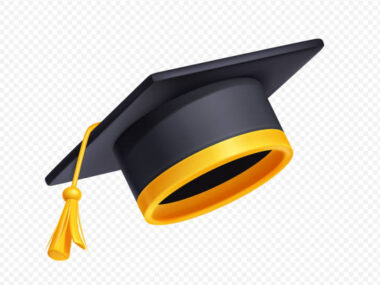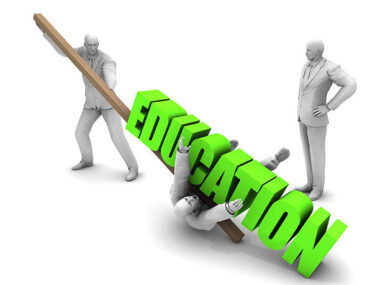Special education paraprofessionals are integral members of the educational team, working alongside teachers to provide students with the tailored support they need to thrive. Their contributions to the classroom range from implementing individualized education plans (IEPs) to fostering a positive and adaptive learning environment. This dedicated role is often filled by individuals with a passion for education and a commitment to helping all students achieve their full potential.
In this post, we’ll delve into what it means to be a special education paraprofessional, the qualifications one must possess, and the profound impact they have on students’ lives.
What Is A Special Education Paraprofessional, And What Role Do They Play In The Classroom?
Special education paraprofessionals are the unsung heroes of inclusive education. So, what does their role entail?
A special education paraprofessional, also known as a teacher’s aide or instructional assistant, provides support to students with disabilities or special needs in an educational setting.
They collaborate closely with special education teachers to implement individualized education plans (IEPs), adapt the curriculum, and provide the necessary individualized instruction.
In the classroom, their responsibilities extend to behavior management, offering one-on-one or small group attention, and nurturing social skills, ensuring that each student’s education is both comprehensive and customized.
Paraprofessionals are vital in offering additional communication channels and understanding, acting as a bridge to help each student reach their unique educational milestones. Additionally, in the classroom, they may:
- Observe and record student progress
- Assist with personal care tasks for students
- Work with other educational professionals to create an inclusive and supportive learning environment
Observational skills, patience, and adaptability are just a few qualities that make paraprofessionals invaluable in special education settings.
Training And Qualifications Necessary For A Special Education Paraprofessional
Special education paraprofessionals generally need a high school diploma or equivalent, but requirements can vary from district to district, with some mandating an associate’s degree or related college coursework.
Passing a comprehensive skills assessment or certification exam is also required in many regions to ensure proficiency in necessary academic and communication areas.
On-the-job training is quite prevalent, guiding paraprofessionals through specific procedures and strategies tailored to the needs of students with disabilities.
Certifications, such as those offered by the Council for Exceptional Children, are available and provide training in child development, educational practices, and pertinent legal knowledge about special education.
Ongoing professional development ensures paraprofessionals remain knowledgeable about the latest practices in special education, enhancing their competencies.
Through dedicated training and continued education, special education paraprofessionals are well-equipped to meet the diverse needs of their students.
Student Support Across the Spectrum
Special education paraprofessionals contribute to the educational journey of students in remarkable ways.
They personalize teaching approaches to fit the unique learning styles and abilities of students, fostering an inclusive and accessible educational experience.
By providing targeted assistance with classroom management, they help maintain an environment that supports the learning of special education students.
Focused on aiding social, behavioral, and academic growth, their one-on-one or small group work encourages independence and builds self-esteem in students.
The invaluable observations and feedback from paraprofessionals help refine IEPs, ensuring they are as effective and comprehensive as possible.
Implementing IEPs: The Paraprofessional’s Role
The creation of Individualized Education Plans falls primarily on certified special education teachers and other professionals within the field.
Special education paraprofessionals, while not designing the IEPs, are pivotal in carrying out the plans by providing necessary support and adaptations to students.
They may offer insights and observations to the IEP team, enriching the planning process.
In the classroom, the paraprofessional’s role is to assist students in achieving their IEP goals, often through individualized attention and modified materials and instructions.
Their dedicated support is essential in ensuring the strategies defined by an IEP are actualized in the educational setting to benefit the students’ learning outcomes.
Partnering with Parents for Educational Success
For parents and guardians, forming a collaborative relationship with the special education paraprofessional is key to supporting their child’s educational goals.
Establish open lines of communication – Regular conversations allow for an exchange of information about the child’s educational needs and progress.
Collaborate on setting goals – Together; identify educational objectives that resonate with the child’s requirements, creating a unified approach.
Share relevant information – Discussing the child’s interests and successes can guide the paraprofessional in personalizing their support strategies.
Seek feedback and be receptive – Embrace the perspectives offered by those who work closely with the child every day in the classroom.
Show appreciation and respect – Acknowledging the paraprofessional’s contributions underscores the vital role they play in the child’s learning journey.
A respectful partnership with continuous communication bolsters the effectiveness of the educational support provided by paraprofessionals.
Unpacking Special Education Paraprofessional Skills
The role of a special education paraprofessional demands a vast array of skills and personal qualities, including:
Understanding diverse educational needs: Each student is unique, and paraprofessionals must grasp the intricacies of various disabilities to provide the most suitable support.
Patience and empathy: An empathetic approach enhances the connection with students, making the educational experience more relatable and nurturing.
Behavior management techniques: The ability to manage classroom dynamics is fundamental to maintaining an environment where all students can focus and engage in learning.
Effective collaboration with other educational professionals ensures consistent support across different settings and contributes to the successful implementation of IEPs.
Stepping Stones to Becoming a Special Education Paraprofessional
The journey of a special education paraprofessional includes:
Educational Qualifications: Requirements can range from a basic high school diploma to specific degrees in special education or related fields.
Training & Certification: Along with specialized training, certifications in areas such as first aid and crisis intervention may be necessary.
Experience with Special Needs: Previous exposure to working with individuals with disabilities can be an invaluable asset to a paraprofessional’s skillset.
Skill Development: Strong communication abilities and the readiness to collaborate with multi-disciplinary teams are fundamental.
Through continuous educational advancement, paraprofessionals remain adept at employing the latest, most effective strategies in their work.
Daily Duties of a Special Education Paraprofessional
Special education paraprofessionals undertake a variety of tasks aimed at enhancing the learning experiences of students with special needs, such as:
Implementing IEPs: Actively assisting in the delivery of plans tailored to each student’s specific requirements.
Collaboration: Working alongside teachers and educational specialists to adapt instruction and materials for the diverse learning needs.
Monitoring Progress: Keeping a keen eye on both academic and social-emotional developments, adapting strategies as necessary to promote growth.
By maintaining an open line of communication with parents and educators, paraprofessionals strive to create a seamless and supportive network for each student.
Special Education Paraprofessional Certification
Special education paraprofessional certification is a credential that is required in many educational systems for individuals who wish to support special education teachers in providing services to students with disabilities.
This certification ensures that paraprofessionals have the necessary skills, knowledge, and competencies to effectively assist in the educational development of children with special needs.
Why Is Special Education Paraprofessional Certification Important?
1. Ensures Qualified Assistance: This certification confirms that paraprofessionals have undergone specific training to meet the diverse and unique needs of special education students. It’s an assurance to parents, teachers, and educational institutions that the paraprofessional is equipped with the right tools to provide quality assistance.
2. Enhances Education Quality: Certified paraprofessionals use evidence-based practices and strategies that have been proven to work well with students who have disabilities. Their training prepares them to collaborate with teachers to implement individualized education plans (IEPs) and ensure that students have access to an inclusive and adaptive learning environment.
3. Legal Compliance: Certain laws, such as the Individuals with Disabilities Education Act (IDEA), require that paraprofessionals meet specific qualifications to work with special education students. Obtaining a certification ensures that paraprofessionals meet these legal requirements.
How to Obtain Special Education Paraprofessional Certification?
1. Educational Requirements: Typically, a candidate must have at least a high school diploma or equivalent. Some regions or institutions may require additional college-level coursework in special education or related fields.
2. Training Programs: Many community colleges, technical schools, and universities offer paraprofessional education programs. These programs usually combine classroom instruction with practical experience through internships or practicums in special education settings.
3. Examination: Prospective special education paraprofessionals may need to pass a certification exam that tests their knowledge of child development, instructional strategies, and the various aspects of special education law.
4. Continuous Education: To maintain their certification, paraprofessionals often need to complete continuing education units (CEUs) or additional coursework to stay up to date with the latest best practices in special education.
Career Prospects for Certified Special Education Paraprofessionals
Individuals with special education paraprofessional certification have the opportunity to work in various educational settings, including public and private schools, special education centers, and private practices. They can make a significant difference in the lives of students with disabilities by providing tailored support that allows these students to achieve their full potential.
Moreover, with experience and continued education, paraprofessionals can advance in their careers, potentially moving into positions with greater responsibility or transitioning into teaching roles themselves if they choose to pursue additional qualifications.
In conclusion, special education paraprofessional certification is a vital step for individuals who are passionate about educating and supporting children with special needs. Acquiring this certification not only validates their expertise but also opens up abundant career opportunities.
Certified special education paraprofessionals are in high demand across various educational settings, including public and private schools, special education centers, and inclusive classroom environments. Their specialized skills enable them to work closely with special education teachers to implement individualized education programs (IEPs) and adapt lesson plans to meet each student’s unique learning requirements.
Furthermore, they are often sought after for their ability to assist with behavioral management and to provide one-on-one or small group instruction, which is crucial for students with disabilities.
As schools continue to recognize the importance of personalized education for students with special needs, the need for qualified special education paraprofessionals is expected to grow, leading to a positive job outlook and potential for career advancement in the field of special education.
Special Education Paraprofessional Jobs
Special education paraprofessionals are vital support staff in the field of education, providing assistance to both teachers and students within a special education setting. They work under the guidance of lead teachers to create an inclusive learning environment tailored to the needs of students with disabilities.
Paraprofessionals are the backbone of special education classrooms, ensuring that individualized attention is given to each student, often working on a one-on-one basis or with small groups.
Key Responsibilities
As a special education paraprofessional, the responsibilities are diverse and dynamic, they include:
Instructional Support: Assisting in the delivery of the curriculum by adapting teaching materials to meet each student’s learning style and needs.
Behavior Management: Establishing and maintaining a stable, supportive environment that encourages positive behavior and allows students to focus on learning.
Personal Care Assistance: For students with physical disabilities, paraprofessionals may provide help with mobility, eating, dressing, or using the restroom.
Monitoring Progress: Tracking and reporting a student’s progress toward their Individualized Education Program (IEP) goals is a crucial part of the role.
Qualifications and Skills
Education requirements for special education paraprofessionals can vary depending on the school district. However, most positions require at least a high school diploma, along with:
Postsecondary Education: Some college credit, a degree, or a paraprofessional certificate can be advantageous.
Patience and Empathy: Working with students with special needs requires a high level of understanding and the ability to stay calm under pressure.
Collaborative Skills: They must work effectively with teachers, parents, and other professionals to support the student’s educational goals.
Adaptability: The ability to adjust methods and approaches to meet the varying needs of students is essential.
Training and Development
Special education paraprofessionals typically undergo initial training before starting in the classroom and may receive ongoing professional development. Training topics can include:
- Behavior management techniques
- Disability awareness
- Instructional strategies
- Use of assistive technology
Career Path and Advancement
Starting as a special education paraprofessional offers a pathway to a rewarding career in education and human services. Some paraprofessionals decide to further their education to become special education teachers, school counselors, or administrators, among other specialized roles.
Being a special education paraprofessional is more than just a job; it’s a compelling mission to ensure that every child, regardless of their challenges, has access to the education and support they need to thrive. It’s about making a real difference in the lives of students and their families, making it a deeply fulfilling career choice for those with a passion for nurturing young minds.
The Impact of a Special Education Paraprofessional
Special education paraprofessionals hold a role of unspeakable value. They bridge gaps, foster growth, and ignite confidence within students navigating the complexities of learning with disabilities.
Through dedicated training, empathy, and collaborative spirit, these professionals ensure that every student has the support and opportunity to reach their educational goals.
As we’ve explored the multifaceted aspects of their role, it’s clear that special education paraprofessionals are more than just support staff—they are key contributors to the foundational structure of inclusive education.






